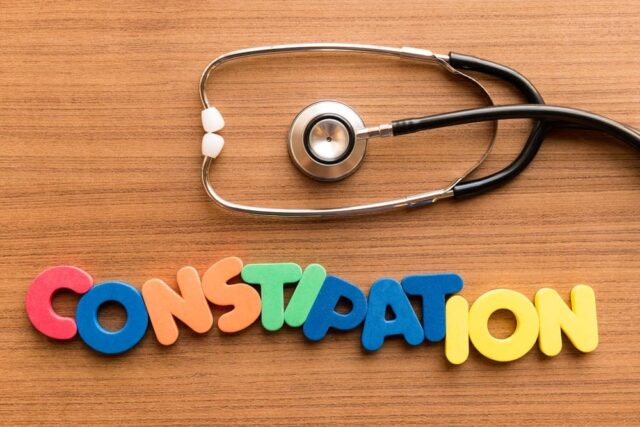Experience flora-focused relief with probiotics! Learn how probiotics can ease constipation symptoms naturally. Discover the science behind probiotics and their effectiveness in promoting regularity and alleviating constipation discomfort.
Table of Contents
Introduction
The gut microbiome plays a crucial role in our overall health, influencing everything from our immune system to our mood. Recent studies have shed light on its role in digestive health, particularly in managing constipation. This article explores how probiotics, beneficial bacteria that reside in our gut, can offer relief from constipation symptoms, making daily life more comfortable and improving gut health.
The Gut Microbiome and Its Role
Key Functions of the Gut Microbiome
- Digestion and Nutrient Absorption: The gut microbiome helps break down certain foods that the stomach and small intestine have not been able to fully digest. This process allows us to absorb valuable nutrients from these foods. For example, some bacteria in the gut are crucial for the breakdown of complex carbohydrates, fibers, and even some proteins and fats.
- Immune System Regulation: A significant portion of the immune system is located in the gut. The microbiome plays a critical role in educating and regulating the immune system, helping it distinguish between friendly and harmful invaders. A balanced microbiome supports the immune system’s ability to fight off infections and reduces the risk of autoimmune diseases.
- Protection Against Pathogens: The beneficial bacteria in our gut compete with harmful pathogens for space and resources. By occupying space and consuming available nutrients, they can inhibit the growth of harmful bacteria and other pathogens, acting as a natural defense mechanism.
- Synthesis of Vitamins: Some gut bacteria are capable of synthesizing essential vitamins that the body cannot produce on its own, such as vitamin K and certain B vitamins. These vitamins play key roles in blood clotting, energy production, and other vital processes.
- Mental Health and Mood Regulation: Emerging research suggests a strong connection between the gut microbiome and the brain, often referred to as the “gut-brain axis.” The gut microbiome can influence brain health and mood through the production of neurotransmitters (such as serotonin), modulation of inflammation, and direct neural pathways.
Factors Affecting the Gut Microbiome
The composition of the gut microbiome is influenced by various factors, including diet, lifestyle, age, and antibiotic use. Diets rich in diverse plant-based foods, fibers, and fermented products can promote a healthy and diverse microbiome. Conversely, diets high in processed foods, sugar, and fats may negatively affect microbial diversity and abundance.
Maintaining a Healthy Gut Microbiome
To support a healthy gut microbiome, it is recommended to:
- Eat a diverse range of whole foods, particularly those high in fiber.
- Include fermented foods in your diet, such as yogurt, kefir, sauerkraut, and kombucha, which contain beneficial probiotics.
- Avoid unnecessary antibiotics, as they can disrupt the microbial balance in the gut.
- Manage stress levels, as chronic stress can negatively affect gut health.
- Consider probiotic supplements if advised by a healthcare provider, especially during or after antibiotic use.
The Science Behind Probiotics
How Probiotics Work
Probiotics operate through several mechanisms to exert their positive effects on the human body:
- Restoring the Balance of the Gut Microbiome: The human gut hosts a complex community of microorganisms, including bacteria, yeasts, and viruses. Factors like diet, lifestyle, antibiotic use, and stress can disrupt this microbial balance, leading to issues like diarrhea, constipation, and infections. Probiotics help restore this balance by replenishing the gut with beneficial bacteria.
- Strengthening Gut Barrier Function: Probiotics can enhance the integrity of the gut barrier, which serves as a protective lining to prevent harmful substances and pathogens from “leaking” into the bloodstream. This function is crucial in reducing inflammation and preventing infections.
- Modulating the Immune System: Beneficial bacteria from probiotics interact with the body’s immune cells, modulating immune responses. This interaction can help the body more effectively fight off infections and reduce the risk of certain autoimmune diseases.
- Producing Beneficial Substances: Some probiotics produce substances like short-chain fatty acids (SCFAs), which have various health benefits, including nourishing gut cells, reducing inflammation, and regulating metabolism.
- Competing with Pathogens: Probiotics can inhibit the growth of harmful bacteria by competing for nutrition and attachment sites in the gut lining. Some also produce bacteriocins, natural antibiotics that kill or inhibit the growth of pathogenic bacteria.
Types of Probiotics
There are many different strains of probiotics, each with unique benefits. The most common genera include Lactobacillus, Bifidobacterium, and Saccharomyces. Within these groups, specific strains have been studied for their health effects, such as Lactobacillus rhamnosus GG for diarrhea and Bifidobacterium lactis for constipation.
Evidence-Based Benefits
The effectiveness of probiotics has been supported by various studies, showing benefits in areas such as:
- Digestive Health: Probiotics can help manage irritable bowel syndrome (IBS), inflammatory bowel disease (IBD), and antibiotic-associated diarrhea.
- Immune Function: Regular intake of probiotics may reduce the incidence and duration of respiratory infections and certain allergic conditions.
- Mental Health: Emerging research suggests a link between gut health and mental health, indicating that probiotics may have potential benefits in treating depression and anxiety through the gut-brain axis.
Considerations and Safety
While probiotics are generally considered safe for most people, it’s important to choose the right type and dosage. Individuals with compromised immune systems or severe illnesses should consult healthcare professionals before starting probiotics. The effectiveness of probiotics can vary based on the strain, dosage, and individual health conditions, highlighting the importance of personalized recommendations.
Probiotics and Constipation Relief
Mechanisms of Action
Probiotics aid in constipation relief through various mechanisms:
- Improving Gut Microbiome Balance: The gut microbiome plays a crucial role in digestion and bowel movements. An imbalance in this ecosystem can lead to constipation. Probiotics help restore a healthy balance of gut flora, which is essential for regular bowel movements.
- Enhancing Gut Motility: Gut motility refers to the contractions of the muscles in the gastrointestinal tract that move contents forward. Some probiotic strains can increase gut motility, helping to reduce transit time and alleviate constipation.
- Producing Short-Chain Fatty Acids (SCFAs): Probiotics ferment dietary fibers, producing SCFAs like butyrate, acetate, and propionate. These compounds can stimulate the movement of the intestines, improving bowel regularity.
- Modulating the Immune System: Probiotics can influence the immune response in the gut, which is closely linked to the health of the digestive tract. A well-functioning immune system in the gut can contribute to a healthier bowel movement pattern.
Evidence Supporting Probiotics for Constipation
Clinical studies have shown that certain probiotic strains can effectively relieve constipation. For instance:
- Bifidobacterium lactis: Studies have found that Bifidobacterium lactis can increase stool frequency and improve stool consistency in individuals with constipation.
- Lactobacillus reuteri: Some research suggests that Lactobacillus reuteri may help reduce the transit time for waste to pass through the gut, easing constipation symptoms.
- Combination Probiotic Formulas: Formulas containing multiple strains of probiotics have also been studied for their effectiveness in treating constipation, with some research indicating improved bowel movement frequency and stool consistency.
Choosing the Right Probiotics for Constipation
When selecting a probiotic for constipation relief, it’s important to consider the specific strains and their documented benefits. Products that contain strains with evidence supporting their use in treating constipation, such as Bifidobacterium lactis and Lactobacillus reuteri, may be more effective. Additionally, looking for products that specify the number of colony-forming units (CFUs) can help ensure that you’re getting a potent enough dose to see benefits.
Incorporating Probiotics into Your Diet
Probiotics can be found in both supplement form and in fermented foods, such as yogurt, kefir, sauerkraut, and kombucha. Incorporating these foods into your diet can provide a natural source of beneficial bacteria. However, for specific strains and dosages, probiotic supplements may be a more suitable option.
Choosing the Right Probiotics
Identify Your Health Needs
The first step in choosing the right probiotic is to identify your specific health needs. Different strains of probiotics have been studied for their benefits in various health areas, including:
- Digestive Health: For issues like constipation, IBS (Irritable Bowel Syndrome), and diarrhea.
- Immune Function: To enhance immune response and reduce the frequency of respiratory infections.
- Mental Health: Emerging research suggests some probiotics can influence mood, anxiety, and stress levels.
Knowing your health goals can guide you towards probiotics that have been researched for those particular concerns.
Understand Probiotic Strains
Probiotics are categorized into different genera, species, and strains. The strain is the most specific classification and is key to the probiotic’s health effects. Common genera include Lactobacillus, Bifidobacterium, Saccharomyces, and Streptococcus. For example:
- Lactobacillus rhamnosus GG has been widely studied for gastrointestinal health and immune support.
- Bifidobacterium lactis HN019 is known for improving bowel regularity and reducing constipation.
Look for products that list the specific strains on the label, as this indicates the manufacturer’s attention to the probiotic’s clinical effectiveness.
Check the Colony Forming Units (CFUs)
The potency of a probiotic is often measured in Colony Forming Units (CFUs), which indicate the number of live and viable microorganisms in each dose. While higher CFUs are not always better, a probiotic supplement should have a count ranging from several billion to tens of billions to ensure enough live bacteria reach your gut. Some conditions might require higher CFUs for effectiveness, so it’s important to research or consult healthcare professionals regarding appropriate doses for your specific health needs.
Third-Party Testing
Look for products that have been third-party tested for quality and potency. Third-party testing by reputable organizations ensures that the probiotic contains the strains and CFUs claimed on the label and is free from contaminants.
Delivery System and Packaging
The delivery system of a probiotic supplement (e.g., capsules, powders, or liquids) can affect its stability and the survival of its microorganisms through the acidic environment of the stomach. Look for products with delivery technologies designed to protect the probiotics until they reach the intestines, such as delayed-release capsules.
Packaging is also important for maintaining the viability of probiotics. Choose products with packaging that protects the bacteria from moisture, heat, and light.
Expiration Date
Probiotics are live organisms, and their potency can decrease over time. Always check the expiration date on the product and choose one that gives you enough time to consume it before it expires. Some products may also require refrigeration to maintain their potency, so make sure you can store them as recommended.
Incorporating Probiotics into Your Diet
1. Consume Fermented Foods
Fermented foods are natural sources of probiotics, as they are produced through the fermentation process, which involves beneficial bacteria breaking down sugars and starches. Incorporate the following fermented foods into your diet:
- Yogurt: Choose plain yogurt with live and active cultures. Greek yogurt, skyr, and kefir are also excellent options.
- Sauerkraut: Fermented cabbage that is rich in probiotics and fiber.
- Kimchi: A spicy Korean side dish made from fermented vegetables, such as cabbage and radishes.
- Kombucha: A tangy, effervescent tea drink fermented with SCOBY (symbiotic culture of bacteria and yeast).
2. Enjoy Probiotic-Rich Beverages
In addition to kombucha, there are other probiotic-rich beverages you can incorporate into your diet:
- Kefir: A fermented milk drink that is similar to yogurt but has a thinner consistency and a slightly tangy flavor.
- Probiotic Shots: Some health food stores offer probiotic shots or drinks that contain high concentrations of beneficial bacteria.
3. Add Probiotic Supplements
If you’re unable to get enough probiotics from food sources alone, consider taking probiotic supplements. Look for high-quality supplements that contain a variety of probiotic strains and adequate CFUs (colony-forming units). Consult with a healthcare professional to determine the right probiotic supplement for your specific needs and health goals.
4. Incorporate Probiotic-Rich Ingredients
In addition to fermented foods and beverages, you can incorporate probiotic-rich ingredients into your meals and snacks:
- Miso: A traditional Japanese seasoning made from fermented soybeans, barley, or rice. Add miso paste to soups, marinades, or salad dressings for a probiotic boost.
- Tempeh: A fermented soybean product that can be used as a meat substitute in dishes like stir-fries, salads, and sandwiches.
- Pickles: Choose naturally fermented pickles (not those made with vinegar) to reap the probiotic benefits.
5. Experiment with Homemade Fermentation
If you enjoy cooking and experimenting in the kitchen, consider trying your hand at homemade fermentation:
- Homemade Yogurt: Make your own yogurt using a yogurt starter culture and milk. This allows you to control the fermentation process and customize the flavor.
- Fermented Vegetables: Experiment with fermenting your own vegetables, such as carrots, cucumbers, or beets, to create probiotic-rich snacks or side dishes.
Lifestyle Considerations for Constipation Relief
1. Hydration and Fiber Intake
- Drink Plenty of Water: Adequate hydration is essential for maintaining regular bowel movements. Aim to drink at least 8 glasses of water per day to keep stools soft and easy to pass.
- Increase Fiber Intake: Fiber adds bulk to stool and helps promote regular bowel movements. Include plenty of fiber-rich foods in your diet, such as fruits, vegetables, whole grains, legumes, and nuts.
2. Regular Physical Activity
- Stay Active: Engaging in regular physical activity, such as walking, jogging, cycling, or yoga, can help stimulate bowel movements by improving intestinal muscle contractions and promoting overall digestive health.
3. Establish a Regular Bathroom Routine
- Set Aside Time: Establish a regular schedule for bowel movements by setting aside time each day for a visit to the bathroom. Consistency can help train your body to have regular bowel habits.
4. Manage Stress Levels
- Practice Stress Management Techniques: Chronic stress can negatively impact digestive health and contribute to constipation. Incorporate stress-reducing activities into your daily routine, such as meditation, deep breathing exercises, yoga, or spending time outdoors.
5. Avoid Holding In Bowel Movements
- Listen to Your Body: When you feel the urge to have a bowel movement, don’t ignore it or hold it in. Responding promptly to the body’s signals can help prevent stool from becoming hardened and difficult to pass.
6. Consideration of Medications and Supplements
- Review Medications: Some medications, such as certain pain relievers, antacids, and iron supplements, can contribute to constipation as a side effect. Consult with your healthcare provider if you suspect that your medications may be causing constipation.
- Supplement with Magnesium: Magnesium supplements can help relax the muscles in the intestines and promote bowel movements. However, it’s important to consult with a healthcare professional before starting any new supplements.
7. Evaluate Your Toilet Posture
- Use a Squatting Position: Elevating your feet on a small stool while sitting on the toilet can help straighten the rectum and make it easier to pass stools.
8. Be Patient and Persistent
- Give It Time: Making lifestyle changes for constipation relief may take time to yield results. Be patient and persistent in implementing these habits, and monitor how your body responds over time.
Conclusion
Probiotics offer a promising, natural approach to alleviating constipation symptoms. By understanding how to choose and incorporate the right probiotics into your diet, alongside healthy lifestyle practices, you can achieve better digestive health and comfort.
FAQs
- Can probiotics cure constipation? While probiotics cannot “cure” constipation, they can significantly alleviate its symptoms by improving gut health.
- How long does it take for probiotics to work for constipation? The effects of probiotics can vary, but many people notice improvements within a few weeks of regular use.
- Are there any people who should not take probiotics? Individuals with compromised immune systems or those on certain medications should consult with a healthcare provider before taking probiotics.
- Can children take probiotics for constipation? Yes, certain probiotic strains are safe and effective for children, but it’s important to choose products specifically designed for their age group.
- Do probiotics have any side effects? Some individuals may experience mild digestive symptoms, such as gas and bloating, when they first start taking probiotics. These symptoms usually subside with continued use.



MOST COMMENTED
Animal-Based Proteins / Casein Protein / Dietary Protein / High-Protein Diets / Pea Protein / Plant-Based Proteins / Protein / Protein Deficiency / Protein Supplements / Proteins / Whey Protein / Whey Proteins
Is Protein Powder Safe for Teenagers and Children?
Animal-Based Proteins / Casein Protein / Dietary Protein / High-Protein Diets / Pea Protein / Plant-Based Proteins / Protein / Protein Deficiency / Protein Supplements / Proteins / Whey Protein / Whey Proteins
Unlock the Power of Proteins for Optimal Gut Health
Multivitamin
Total Health: Multivitamin for Active Lifestyles
Multivitamin
WellnessFusion: Complete Multivitamin Support
Dietary Supplement
Revitalize Your Health: The Magic of Red Yeast Rice Capsules
Foot care / Foot Health
Revitalize Your Foot Care Routine: Essential Tips for Optimal Foot Health
Foot Problem / Diabetics / Foot Health
Diabetics: Mastering Footwear Selection for Enhanced Foot Health and Ultimate Comfort
Exercises and Footwear Tips for Hammertoe Relief / Foot care / Foot Health / Foot Pain / Foot Problem / Hammertoes
Unlock Effective Exercises and Footwear Tips for Hammertoe Relief
Hammertoes / Foot Health / Foot Pain / Foot Problem
Unlock Relief: Essential Guide to Hammertoes Causes, Symptoms, and Treatments
Foot Problem / Foot Health
Revolutionize Your Recovery: Natural Remedies for Plantar Fasciitis – Fresh Home Keepers